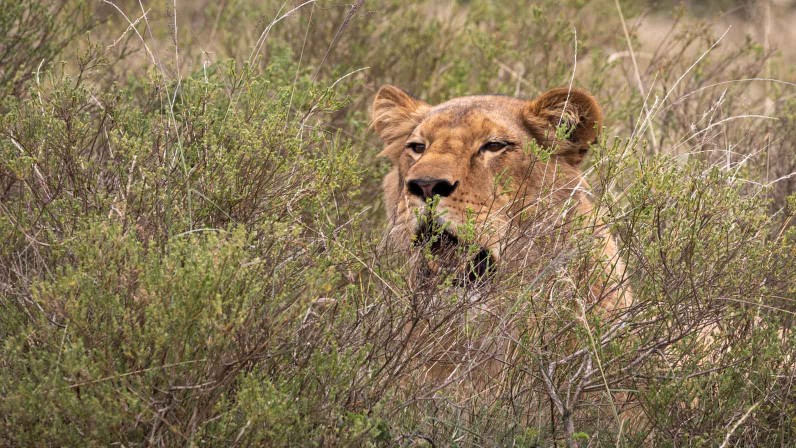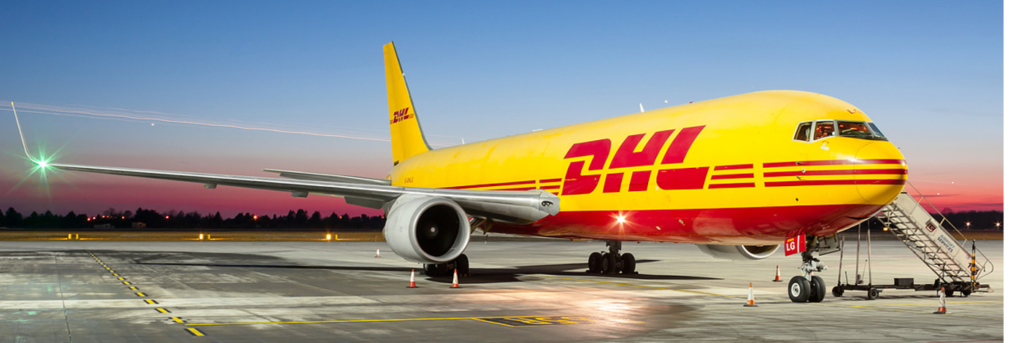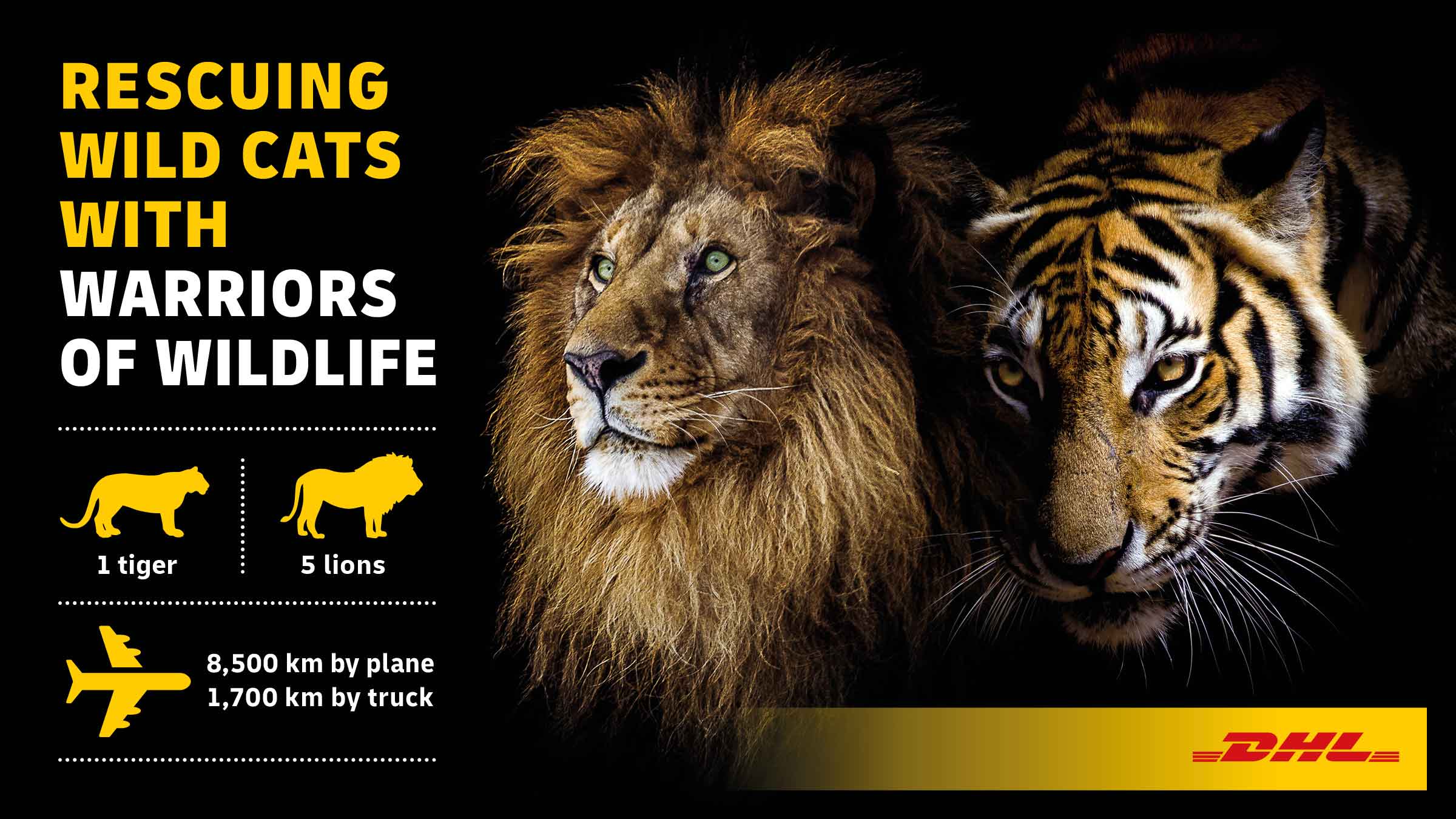Bonn, Germany – DHL Global Forwarding has continued its commitment to supporting wildlife by assisting a conservation organization with the rescue five lions and one tiger from captivity. On behalf of Warriors of Wildlife, the wild cats, all born in Ukraine, were relocated safely to South Africa. Following this transport, the non-profit organization has rescued a total of 28 wild cats and other animals from Ukraine. In the past, DHL Global Forwarding has also helped relocate several brown bears, pandas, and most recently, “the world’s loneliest elephant,” Kaavan.
The wild cats were kept in a private zoo in Chernivtsi and a zoo in Nikolaev in the south of Ukraine. DHL brought them to a sanctuary run by the head of the wildlife organization Lionel de Lange. The Simbonga Game Farm & Sanctuary is located near Gqeberha (Port Elizabeth), Eastern Cape, South Africa. Throughout the whole journey the animals were monitored by veterinarian specialists. In Ukraine, the DHL team had the support of a Ukrainian vet until departure. Together with the director of Warriors for Wildlife and another veterinarian they boarded then their flight from Boryspil International Airport to O.R. Tambo International Airport in Johannesburg. The last leg of their journey the cats travelled via road before they were finally welcomed to their new home.

Warriors of Wildlife is a non-profit organization dedicated to the rescue, relocation and future care of abused and neglected wildlife in captivity. The organization was founded in 2016 by Lionel de Lange and his wife Anya Masyach and operates from Ukraine and South Africa.





